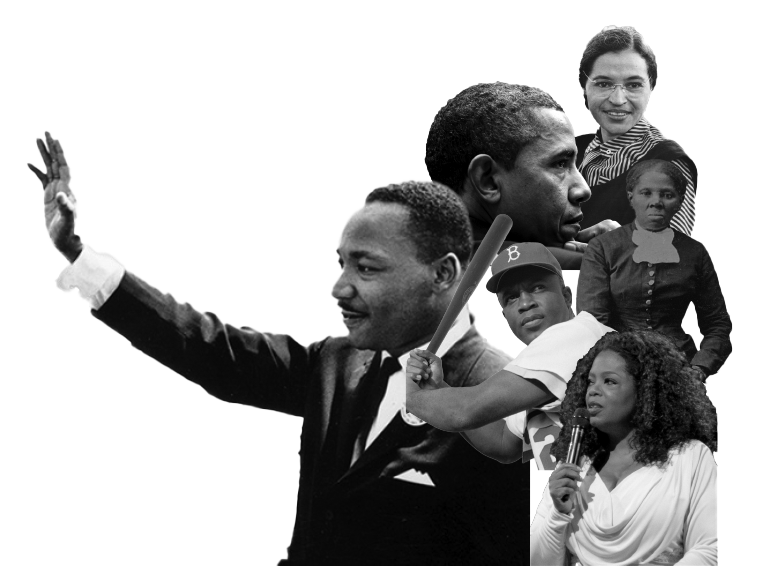Black History Month: Moving forward by looking back
Black Student Union and black students on campus share their black pride.
Black history is often taught in condensed form, being just a chapter in a U.S. history book and almost always only about slavery. Nothing more is required by the curriculum.
Feb 11, 2020
Almost 60 years ago, Martin Luther King Jr. stood in front of the Lincoln Memorial on the March on Washington for Jobs and Freedom in 1963.
“I have a dream,” he started, forever changing the course of Black history.
The role of MLK in the advancement of civil rights and other Black activists have been annually celebrated the whole month of February as Black History Month.
To recognize Black culture and history, Morgan Agee and Jazzmyn Ward decided to start the “Black Student Union” or BSU earlier this school year.
Ward believes the month is a chance to celebrate and recognize the strengths and accomplishments of Black men and women. BSU hopes to unite the campus community of all ethnicities to commemorate Black history and help one another embrace their culture and color.
Although their culture arose from a dark past of colonization, segregation, and discrimination, African-Americans have overcome that obstacle. Yet, issues of racial discrimination still persist to this day.
“I love being Black,” Agee said, “but so many people don’t understand the issues we go through.”
So in combat of their dark past and current struggles, Ward says that BSU gives “a chance to educate the ignorant and uninformed people, so that we, as a nation, can grow and learn from past omissions and harm directed towards the African-American community.”
The community has taken immense steps to break free from past social oppression. Many influencers and artists embrace their heritage and empower other African-Americans through their platforms.
“There are so many amazing influencers today like Kendrick Lamar, J.Cole, Kobe Bryant, Nipsey Hussle, Beyonce, Rihanna,” said student Andrea Derrington.
“What makes me proud to be Black is everything in our culture from our hair to our clothes, and music,” said student Jimmy Curtis.
“African-American culture is what makes me proud to be Black,” said Junior Zainab Jamoh. “Our culture is so rich and has so many different elements to it.”
To share a part of African culture to students on campus, the club representatives and members will be participating in “Multicultural Day” on Feb. 19. On this day, they’ll be bringing their culture’s food and drinks to sell to students.
Although one month is dedicated to appreciating African-American culture and history, U.S. History teacher Mr. Jacob Ferrin believes we should take a step back and recognize if a month is really enough to recognize a deep, complicated, and important part of history.
“All American history is Black history,” said Mr. Ferrin. “African-Americans have been a part of the American story for a very long time.”
Black History Month stemmed from just a week-long commemoration known as “Negro History Week.” In 1976, President Gerald Ford established Black History month to further recognize the accomplishments and the history of Black Americans.
The theme of this month is “African-Americans and the Vote.” It pays homage to the 19th amendment that granted women the right to vote in 1920 and to the 15th amendment that granted Black men the right to vote in 1870.
This year, the National Park Service decided to commemorate the landing of the first enslaved Africans in North America in Aug. 1619 at Virginia’s Point Comfort, which is now a part of Fort Monroe National Monument.
The Library of Congress also has established the first major exhibition to showcase the Rosa Parks Collection in 2014 recognizing Parks who rose to prominence in the 1960s civil rights scene after refusing to give up her seat to a white passenger in a segregated bus. The collection chronicles her life and her public activism.
“Growing up Black and living in this world has shaped me into the type of person I am,” Jamoh expressed. “When you are Black there is a resilience that is ingrained in you.”
“I’m strong, beautiful, and bold because I’m Black,” she said.









